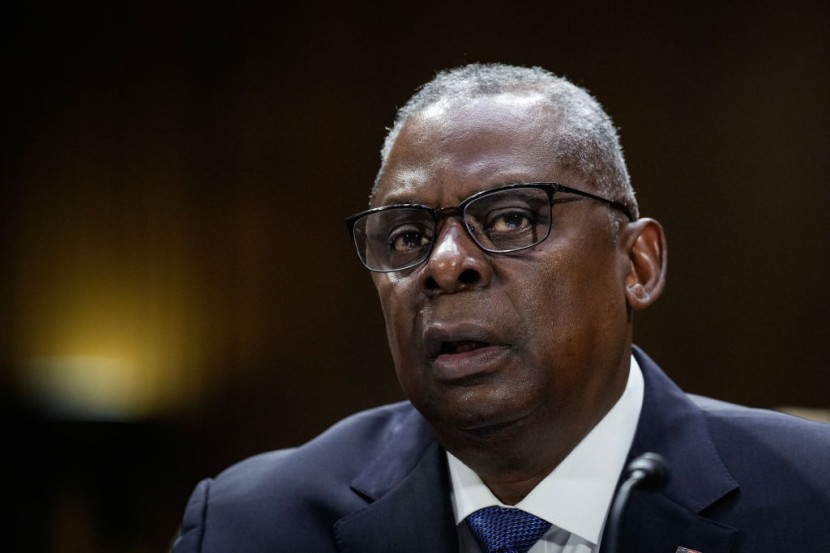The Pentagon has faced scrutiny for not disclosing US Defense Secretary Lloyd Austin's hospitalization for five days, following complications from an elective surgery.
Austin, aged 70, holds a position of great responsibility in the US military, second only to President Joe Biden. His role demands constant readiness to address any national security crisis that may arise.
Pentagon Hides Us Defense Secretary Lloyd Austin's Hospitalization

The timeline of events surrounding Austin's admission to Walter Reed National Military Medical Center on New Year's Day remains uncertain regarding whether he lost consciousness prior to or following his arrival.
In a letter addressed to Pentagon officials, the Pentagon Press Association expressed their disapproval of the Defense Department's lack of transparency. They argued that Austin had no grounds for claiming medical privacy in this situation as a public figure.
The letter from the Pentagon Press Association highlighted the practice of US presidents openly sharing information about delegating responsibilities during medical procedures.
The Pentagon did not provide details about the elective surgery or any complications that may have arisen. Additionally, there was no mention of the extent to which his deputy, Kathleen Hicks, assumed his duties. Being prepared and accessible to address an imminent nuclear attack is part of the responsibilities.
Only a day ago, Air Force Major General Patrick Ryder conducted a televised news briefing at the Pentagon, where he maintained a sense of normalcy. He expressed Austin's condolences to Japan, a valued ally, in the wake of their New Year's Day earthquake.
However, the Pentagon has experienced an eventful week, as US troops in the Middle East grapple with the consequences of the ongoing Israel-Hamas conflict and execute a retaliatory strike in Baghdad on Thursday.
The Defense Department's approach to Austin's hospitalization differs from the State Department's handling of then-Secretary of State Colin Powell's prostate surgery on December 15, 2003.
A statement was released by the State Department spokesman in the morning, announcing that Powell, a retired four-star general and former chairman of the Joint Chiefs of Staff, was undergoing surgery at Walter Reed Army Medical Center. It was stated that he would remain there for several days before returning home.
Additionally, it was mentioned that Powell would be working on a modified schedule during his recovery from the operation. In his daily briefing, Richard Boucher, the State Department's spokesman at the time, provided specific information about Powell's surgery.
Lloyd Austin Was Aware That US Striked Iraq
A senior defense official, who requested anonymity, refused to disclose the details of Secretary Austin's procedure or the nature of the subsequent complication.
According to an official, Austin was fully aware on Thursday as US forces conducted the recent Iraq strike. The official also mentioned that both Austin and Biden had previously given their authorization for the operation, as per Washington Post.
An organization representing media covering the Defense Department expressed frustration about the department's lack of transparency regarding a recent hospitalization. They have requested a meeting with Pentagon leaders to discuss the department's handling of the matter.
Expressing their frustration, the group wrote a letter to Ryder and Chris Meagher, criticizing the delayed public alert about the number of days the individual has spent at Walter Reed National Military Medical Center. The timing of the announcement on a Friday evening was particularly concerning to them.
The press association emphasized the importance of transparency in informing the public about Cabinet members' hospitalization, anesthesia, or delegation of duties due to medical procedures. "This has been a common occurrence, even reaching the highest levels of the government," the letter stated. "Given Secretary Austin's position as the nation's top defense leader, privacy is not applicable in this situation."
Ryder explained that the Pentagon had to carefully consider various factors, such as medical and personal privacy concerns, before announcing due to the changing nature of the situation.
Related Article: Wayne LaPierre Resigns as Leader of the National Rifle Association
© 2025 HNGN, All rights reserved. Do not reproduce without permission.








